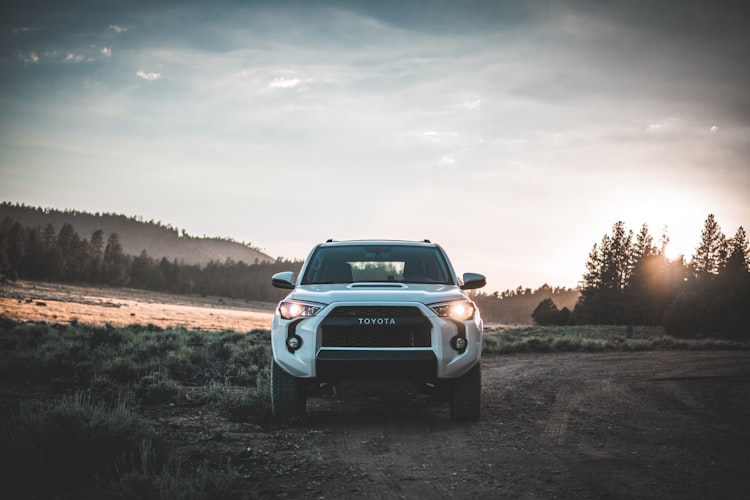What’s the first thing that comes to your mind when you think about camping? If you’re like most people, you’ve already got glimpses of open skies, dense forests, and cozy campfires flashing in front of your eyes. There’s nothing more liberating and satisfying for an outdoor enthusiast than camping in the open.
But planning a camping holiday isn’t as simple as driving to a campsite and pitching your tent. You need to prepare in advance and make sure you pack all your camping essentials. Also, you must check your car and ensure that it’s in perfect working condition.
The last thing you want while camping is to deal with a flat tire or dead battery. Worse still, what if your car breaks down in a deserted forest and you don’t have a way to get back to the main city?
That’s why it is always a good idea to prepare your car before going on a camping trip. There’s more to this process than filling the gas tank and loading your car with fancy camping accessories.
In this blog, we’ve shortlisted a few important things you must do before taking your car out for camping. Let’s take a look.
1. Inspect Your Car
First things first - before you take your car out for any long trip, make it a point to give it a thorough inspection. This can be crucial in helping you identify potential problems that get exacerbated during the trip. Also, it’ll help you assess whether you need to take your car for its scheduled service.
To begin with, make sure you check the essential fluids, such as engine oil, washer fluid, coolant, transmission fluid, and brake fluid. Apart from the fluid levels, you should also check for leakage.
Next, take a look at the battery to check whether all the terminals and electrolytes are intact. You could also use a car battery test kit for this purpose. Likewise, you need to evaluate other components of the vehicle, including the air filters, seat belts, wiper blades, and brake pads.
This is also a good time to check for any broken or malfunctioning light bulbs on your car. If you aren’t well-versed with the vehicle’s anatomy, make sure you read the owner’s manual provided by the manufacturer. Alternatively, you could consider taking your car to a local garage and get it inspected by a licensed mechanic.
If you find any leaks and glitches that could pose a problem, make sure you get them fixed before hitting the road. Depending on the distance and terrain you’re going to cover, it might be wiser to take a car for a full-fledged service before embarking on the trip.
2. Clean It Up
Here’s the thing - the reason you’re going camping is to feel refreshed and rejuvenated. The last thing you want on your trip is a car that’s flooded with old food packets, receipts, dust, and pollen. The only way to avoid this hassle is to clean your car in advance.
Start by getting rid of any objects inside the car that you aren’t going to need during the trip. Next, wipe frequently used surfaces with a microfiber cloth to remove dust and grime. You could also use a portable vacuum cleaner to reach inaccessible areas, such as under the seats.
This is a good time to clean the air vents and filter as well. The last thing you want is for the pollen accumulated in any vent to trigger allergies in your travel companions. Make sure you wipe the seat covers to remove dust and stains. Also, give the floor mats a good wash and dry them before placing them back inside the car.
3. Install a Tow Bar
Depending on the terrain around your campsite, there could be a situation where your car gets stuck in mud, water, or snow. Or it could start malfunctioning in the middle of nowhere and suffer a breakdown.
Installing a nifty tow bar on your car will come in handy in such situations. It makes the process of removing your car from its surroundings easier. It’s also useful in the unfortunate scenario when your vehicle meets with an accident.
Make sure you choose the right type of tow bar based on your car’s model and brand. You should also be cautious about damaging other components or violating the warranty terms. If you don’t have the right skills for this, you should consider hiring a professional service that specializes in installing tow bars.
4. Don’t Forget the Tires
You don’t need someone to remind you to check the tire pressure and ensure that the tires are properly inflated. Also, if you’re embarking on a long journey, it’s wiser to take a closer look at the alignments of individual tires and fix any anomalies. Lastly, you need to check the tube and pressure of the spare tire as well.
Whether you’re going to camp in the forest or on a beach, your ultimate goal is to enjoy a hassle-free holiday. Checking your car in advance and getting necessary repairs done on time will go a long way to eliminate the stress of planning a camping trip. Also, it’ll ensure the safety and wellbeing of your loved ones.




